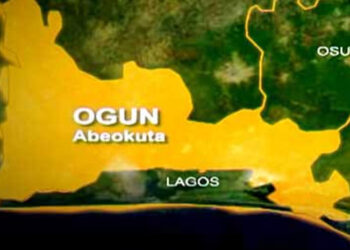As economic challenges persist in Nigeria, airline operators in the country have implemented adjustments to their ticket prices, citing inflation and foreign exchange difficulties. Notably, several major airlines have revised their fares, particularly on the lucrative Lagos-Abuja route, in response to the prevailing economic conditions.
The latest reports indicate that airlines such as Max Air, Ibom Air, and Valuejet, among others, have recalibrated their prices for flights between Lagos and Abuja, one of the busiest air routes in Nigeria. The surge in ticket prices comes amidst a noticeable decline in domestic passengers, leading to nearly deserted airport terminals across the nation.
According to industry sources, the cost of a return flight between Lagos and Abuja now exceeds N400,000, marking a significant escalation compared to previous years. This represents a staggering 300% increase in just two years, as the price of a one-way ticket on the same route was previously quoted at N50,000.
Reports indicate that in February 2022, airlines in Nigeria collectively raised their fares by over 100%, with the lowest fare set at N50,000. However, the current hike in airfares by over 300% underscores the mounting pressures of inflation and foreign exchange fluctuations on the aviation industry.
Presently, a one-way ticket for the approximately 50-minute flight between Lagos and Abuja ranges between N143,000 and N230,000, depending on the airline and time of booking. For instance, Ibom Air offers tickets for this route at varying prices between N150,000 and N200,000, while Valuejet quotes it at N123,905. Similarly, Max Air charges N195,000, and Arik sells tickets at N123,452.
In contrast, foreign airlines have recently announced the availability of more affordable tickets for Nigerian travellers following interventions by the Nigerian government. Despite this, airport workers have lamented the low turnout of travellers at local airports due to the high cost of air travel within the country.
In response to the economic challenges and reduced passenger numbers, Nigerian airlines have adopted cost-cutting measures, such as the re-protection method, which involves sharing passengers among airlines instead of flying with less than 50% capacity. Although initiatives like the Spring Alliance, formed by the Airline Operators of Nigeria (AON) in 2022, were intended to facilitate cooperation among member airlines, their effectiveness has been limited.
United Nigeria Airlines boss, Osita Okonkwo, confirmed the adoption of the re-protection strategy, emphasizing its necessity to mitigate losses. He explained, “It is now more of a cooperation agreement among the member airlines… Only two or three airlines are powerful in the alliance: United Nigeria Airlines, Air Peace, and possibly Dana Air.”
Despite the prevailing challenges, Air Peace, one of Nigeria’s leading airlines, has announced plans to launch a direct flight to London on March 30, 2024. Additionally, the airline has unveiled reduced fare prices for Nigerian students traveling to the UK for studies, in a bid to make air travel more accessible amidst the economic uncertainties.
In a related development, Obiora Okonkwo, CEO of United Nigeria Airlines, commended the efforts of the Central Bank of Nigeria (CBN) in stabilizing the naira. Okonkwo expressed optimism about the possibility of the naira falling below N1000/$, suggesting that thorough introspection by the government is necessary to address underlying economic issues.
As Nigeria’s aviation sector grapples with economic headwinds, the resilience and adaptability of airlines remain crucial in navigating these turbulent times and ensuring the continued provision of air transportation services to the public.











